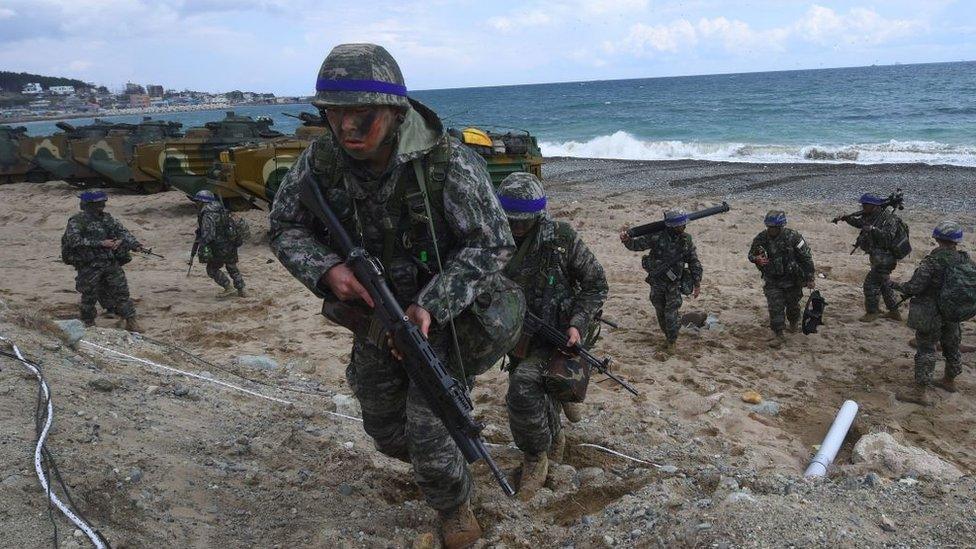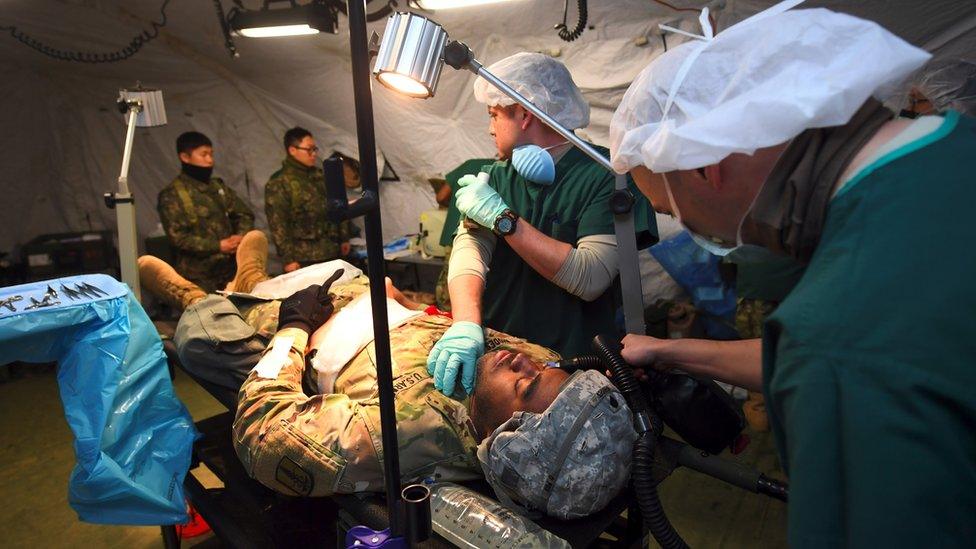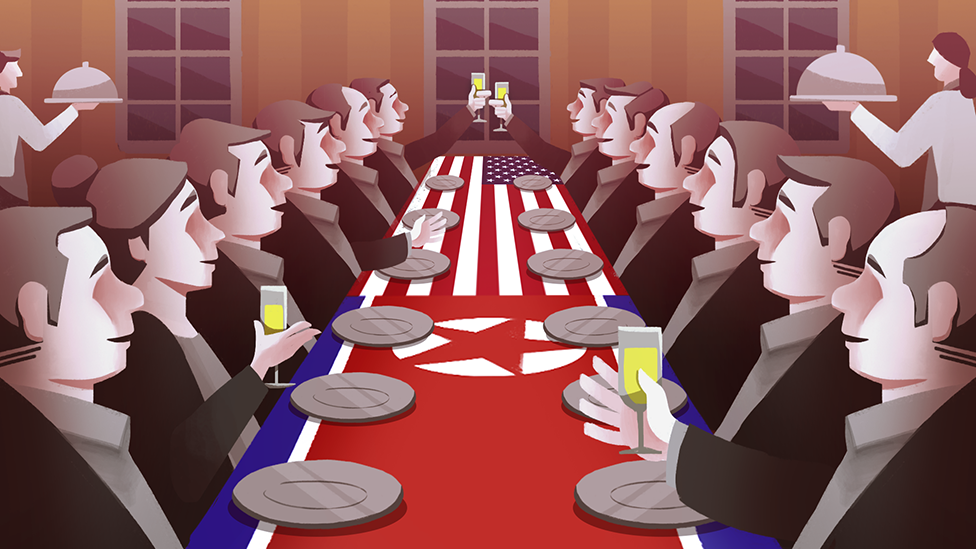US and South Korea set date for postponed Foal Eagle military drills
- Published

The joint exercises involve land, sea and air military drills
Military exercises involving the US and South Korea will go ahead on 1 April, the two countries have announced.
The drills will not be scaled back but the two sides said they should not be seen by the North as a provocation.
They were due to begin in March but were postponed amid the diplomatic thaw surrounding the Winter Olympics.
Separately, South Korea says it will send a group of K-pop stars and other performers to the North later this month in another gesture of goodwill.
A team of 160 artists will put on two shows in Pyongyang. The band Red Velvet and singer Cho Yong-pil will be among those heading north.
The drills involve more than 300,000 personnel and huge military resourcing - in the past the North has seen them as preparation for invasion.
The announcement comes as an unprecedented diplomatic effort is under way to reduce tensions on the Korean peninsula.
Earlier this month US President Donald Trump unexpectedly accepted an invitation from North Korea's Kim Jong-un for face-to-face talks.
North Korea also said it was "committed" to giving up its nuclear weapons, according to officials from the South.
No further details have emerged - and there has been no direct comment from North Korea yet - but if the talks go ahead, it would be the first time a sitting US president has met a North Korean leader.
North Korean Foreign Minister Ri Yong-ho was in Sweden earlier this week, a possible venue for the talks. It was widely assumed he was making preparations for the meeting.
'Not a provocation'
The Foal Eagles and Key Resolve drills would, as originally scheduled, have clashed with the Winter Olympics Games in Pyeongchang, South Korea.
But Seoul agreed in January that they would be postponed.
On Tuesday, the defence ministry said they were expected to resume on 1 April and "at a scale similar to that of the previous years".

The drills also involve medical services and civil defence rehearsals
The Pentagon said North Korea had been informed of the decision, but that the drills were "defence-oriented and there is no reason for North Korea to view them as a provocation".
In his overture to Mr Trump - which was delivered by South Korean officials visiting Washington - Kim Jong-un had reportedly said he understood that the drills "must continue".
This marked a significant shift in tone. North Korea has in the past described the exercises as "pouring gasoline on fire" and threatened serious retaliation.
North Korea has often tested missiles during the drills in a display of anger, but in the statement to Mr Trump it promised to refrain from doing so for the time being.
Foal Eagle/Key Resolve involve land, sea and air military drills and computer simulations. They have also involved practice drills for terror and chemical attacks in recent years.
The US and South Korea insist they are purely for defence purposes, and based out of a mutual defence agreement they signed in 1953.
They also say the exercises are necessary to strengthen their readiness in case of an external attack.
- Published19 October 2017
